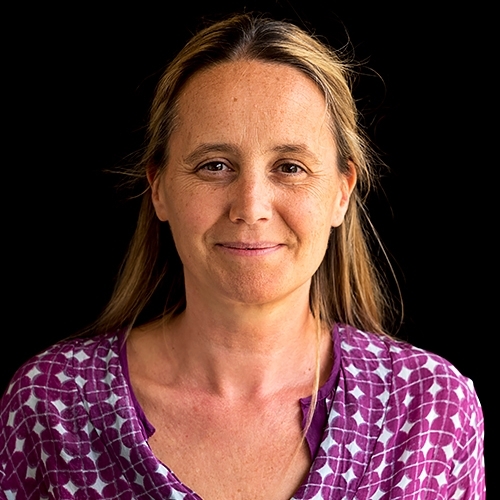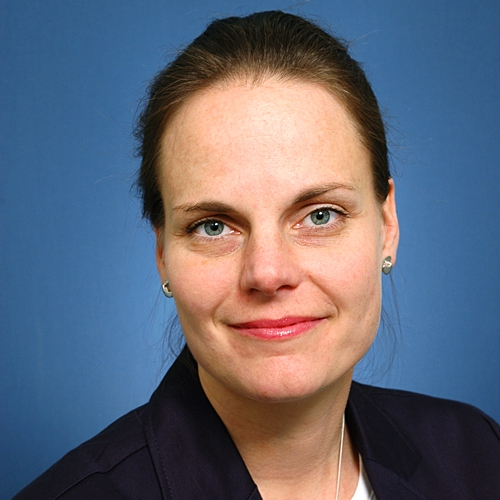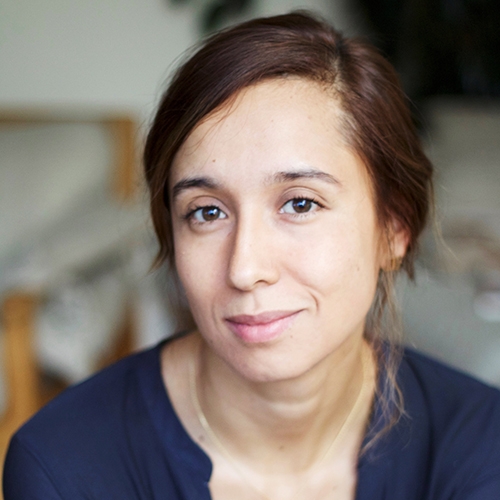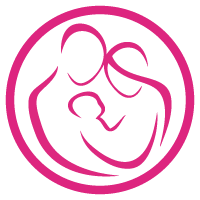 Parents in the NICU Online Course(s) & Continuing Education
Parents in the NICU Online Course(s) & Continuing Education
Access the latest clinical skills and research for Parents in the NICU for NEONATOLOGY professional training. These Parents in the NICU online courses provide practice-changing skills and valuable perspectives from leading global experts. This Parents in the NICU education has been accredited for a variety of CEUs / CERPs and can be accessed on-demand, at your own pace.

‘He Fought Like a Lion’: Using Trauma Resolution Approaches to Support Professionals and Families with Babies in the Neonatal Intensive Care Unit

Kate White is and award-winning craniosacral and massage therapist, prenatal and early childhood educator. She is trained in somatic therapies, prenatal and perinatal health, lactation, brain development, infant mental health, and has specialized in mother-baby dyad care using somatic prevention and trauma healing approaches for nearly 20 years. She is a mother of two children, holds a BA and MA in Communication, is a Registered Craniosacral Therapist in the Biodynamic Craniosacral method and a Somatic Experiencing® Practitioner. Her work combines somatic therapy with brain development to help give families with babies and small children the best possible start. She is Founding Director of Education for the Association for Prenatal and Perinatal Psychology and Health from 2013 – 2018 where she managed a large online educational program for professionals. She currently co-directs this program, administering an online program for parents and parent professionals, runs a private practice and offers her own seminars through the Center for Prenatal and Perinatal Programs, ppncenter.com.
Topic: Best Practices in Prenatal and Perinatal Psychology and Somatic Health for Optimal Birth Outcomes - [View Abstract]
Topic: Integration of the Science of Safety and Resilience into Perinatal Care: A 5 Step Process - [View Abstract]
Topic: The Science of Safety and Trauma Specific Recognition to Improve Birth Outcomes: What Does It Mean for the Midwife? - [View Abstract]
Topic: “It Was Right but so Wrong:” Helping Families Make Sense of Difficult Births with Trauma Sensitive and Prenatal and Perinatal Healing Approaches - [View Abstract]
Having a baby in the Neonatal Intensive Care Unit is one of the most stressful life events for a parent. The nervous system of babies and parents can go into survival mode, disrupting normal development, especially attachment and bonding. This presentation will detail the nervous system’s response to overwhelming births so that parents and professionals can better understand how to support themselves, their partners, parents and babies. Strategies for self-care and skills for increasing nervous system capacity for greater health will be presented. A successful story of reducing prematurity in a birth center will be presented.


Naomi Bar-Yam, PhD, ACSW, has been working in maternal and child health for over 30 years as an educator, researcher, advocate, and writer. She is the immediate past president of the Human Milk Banking Association of North America (HMBANA) and the founding director of Mothers’ Milk Bank Northeast, which provides safe donor milk to hospitals and families throughout the northeastern US. An expert on access to perinatal health care and policies that support breastfeeding, she has been a consultant to the Centers for Disease Control (on a panel that created “The CDC Guide to Breastfeeding Interventions”), to the United States Breastfeeding Committee (developing an issue paper addressed to CEOs and legislators on breastfeeding and the workplace), and to the March of Dimes (developing educational material for women and families who are medically and socially vulnerable to high-risk pregnancy). She also developed a curriculum for hospital personnel about combining breastfeeding with their work. She reviews articles submitted to the Journal of Human Lactation, Breastfeeding Medicine, and other publications related to breastfeeding, milk banking, and access to perinatal child care. As Executive Director of Mothers’ Milk Bank Northeast, she is thoroughly versed in the technical, procedural, and ethical aspects of milk banking. She often speaks at professional conferences, hospital staff trainings, and grand rounds about milk banking and breastfeeding policies.
Topic: Ethical Concerns in Human Milk Exchange - [View Abstract]
Topic: Getting Milk to Babies: Social, medical, economic and commercial forces - [View Abstract]
Topic: The Whys and Hows of Using Banked Donor Milk - [View Abstract]
This talk uses research literature and hospital policies and programs to explore ways for families of babies in the NICU to be meaningful and active members of the NICU care team. We will look at a global snapshot of prematurity; define what a team is and who is on the NICU care team; and discuss the short- and long-term goals of the NICU care team, as well as many tools and strategies that team members and the team as a whole have at their disposal to reach those goals. Can be adapted for US or global audiences.

View Details / Enroll

Attachment and Neurodevelopmental Outcomes in Premature Infants: The Role of Interpersonal Neurobiology in the NICU

Kara Wahlin is a licensed marriage and family therapist and art therapist who resides in the Coachella Valley of southern California. After going through the preterm birth of her twin sons William and Elliott, and the subsequent loss of William, Kara made the promise to dedicate her clinical work to helping other families coping with the trauma and loss often wrought by the NICU experience. She developed the website NICU Healing in order to provide free information, couples and individual therapy, and online support to NICU families. Kara uses strengths-based, neuroloscientifically-informed and creative practices to empower her clients to picking up the pieces of their lives and moving forward with their new life stories. She speaks frequently at conferences discussing best clinical practices, and writes for her own as well as other blogs about new ways of coping with mental health issues that come up after traumatic experiences. In her free time, Kara and her son Elliott are art machines and expert hikers, and also spend their time at home with their menagerie of small animals.
Evidence has shown that attachment between a primary caregiver and their preterm infant can change the neurodevelopmental outcomes for the infant later in life. Attachment can be seen as a living organism between parent/caregiver and child, and with encouraged development and growth, the attachment relationship can have profound effects, even in the context of the most difficult of circumstances and medical diagnoses. The more NICU caregivers know how to encourage attachment, the likelier a family system will need less medical/psychological intervention after discharge from the hospital.

Closeness and Separation and Its Importance for Parenting and Feeding in NICUs

Renée Flacking is Associate Professor and the leader for Reproductive, Infant and Child Health (RICH) at the School of Education, Health and Social Studies, Dalarna University, Sweden. Renée has a background as a Paediatric Nurse, having worked in a Neonatal Care Unit for more than 10 years. In 2007, she received her PhD in Medical Science, Uppsala University: Breastfeeding and Becoming a Mother – Influences and Experiences of Mothers of Preterm Infants. In 2009-2010 she undertook her PostDoc, conducting an ethnographic study in neonatal units in Sweden and England focusing on infant feeding and relationality. Renée has published more than 40 articles on neonatal care and is the Editor, together with Professor Fiona Dykes, for the book Ethnographic Research in Maternal and Child Health, Routledge. Renée’s main research interest is in the area of parenting and feeding in families with preterm infants focusing on emotional, relational and socio-cultural influences.
This presentation highlights the impact of separation and closeness on the parent and infant but also the impact of the design in neonatal units on breastfeeding/feeding and relationships. Most neonatal units across the world are designed as Open-bay units with little privacy and few means for mothers to stay in close proximity with their infants. Such units are challenging for parents and even more so in terms of breastfeeding support. With single room units, new challenges appear and hence new strategies need to be sought. Through consideration of the literature and by examples from different studies I will try to illuminate the impact of neonatal units’ design on feeding and parenting.

View Details / Enroll

View Details / Enroll

Early Vocal Contact Between Parents and Preterm Infants in the Neonatal Intensive Care Unit

Manuela Filippa is researcher at the Geneva University. She received her PhD in Developmental Psychology at the University of Paris Ouest Nanterre, she studies the effects of the Early Vocal Contact - maternal direct speech and songs - on premature infant’s development in collaboration with international research centers. She is a Musician by training, she teaches Psychology of Music and Music Education at the University of Valle d'Aosta, Italy. She became an expert in the field of early interventions in at-risk populations. Her scientific works were published in a number of international journals, in a dedicated book on Early Vocal Contact and, lastly, in a Special Issue of National Geographic, January 2019.
Early Vocal Contact aims to enhance closeness between preterm infants and their caregivers, principally through the medium of the voice. The specific aims of this presentation are;
(1) to give evidence the special orientation that newborns have towards the maternal voice;
(2) to explore the literature on the effects of the maternal voice on preterm infants in the neonatal intensive care unit;
(3) to identify and to describe the mechanisms through which early vocal contact acts as an early, family-based intervention for preterm infants and;
(4) to suggest some final recommendations for clinical practice.
Encouraging live vocal contact, with preterm infants, far from being only a sensory/acoustical stimulation, can activate a number of related and consequential actions (intuitive parenting, multimodal co-regulation, reciprocal synchronisation). These normal actions in full-term birth are at the foundation of bonding and attachment processes and can lead to long-term and sustained positive effects on the development of preterm infants.

View Details / Enroll


Anna Axelin’s academic career has included conducting quantitative and qualitative research on maternity and neonatal care in multidisciplinary and international research groups. In the Academic year 2011-2012, she joined the faculty of Department of Family Health Care Nursing in University of California San Francisco for her post-doctoral research. Since 2018, she was appointed as an associated researcher in the Department of International Maternal and Child Health at University of Uppsala in Sweden. In addition to the academic career, she has ten-year working experience as a NICU nurse.
She is leading the Health in Early Life and Parenthood (HELP) research group which aims to promote health and welfare in the early stages of life. Her special research interest is how to keep parents and sick newborns together throughout the infant hospital stay and strengthen their relationship already during pregnancy. Anna Axelin’s other research interests include pain and sleep in neonates, and the implementation of evidence-based practice in maternity and neonatal care with the help information technology.
Infants should not be separated from their parents. Parent-infant closeness is vital for the development of parent-infant relationship and consequently for parental well-being and optimal infant development. However, every year, due to medical care or hospital routines detrimental separation affects millions of infants. This presentation explores parents’ and staff’s perceptions of infant-parent closeness and separation in maternity care, delivery ward and neonatal intensive care environment. Based on these experiences, barriers (e.g. care routines and resources) and facilitators (e.g. patient centered communication skills, parent autonomy, single family rooms and couplet care) for closeness will be examined and potential strategies to facilitate parent-infant closeness in neonatal care are discussed.

View Details / Enroll


Keira Sorrells is the mother of triplets born at 25 weeks, 5 days gestation. After starting a non-profit, the Zoe Rose Memorial Foundation in 2008, to offer support services to NICU and bereaved families, she became aware that a collective voice for parents of NICU babies was missing in the Maternal and Infant Health community. In response, she helped launch the Preemie Parent Alliance (PPA) in 2012, where she now serves as President. PPA is a national network of 35 NICU parent support organizations that collaborate to represent the needs and best interests of NICU families in a variety of ways. Ms. Sorrells believes a trusting parent-provider relationship is crucial to build a foundation of empowerment and support on which NICU families thrive well beyond discharge, no matter what the ultimate outcome may be.
It is human nature to "relate" to and take care of those we view as being most like us. However, choosing your patients is not an option. Studies have shown that parents who have an infant in the NICUf are at risk for developing PPD, PTSD, and other mental health concerns that may negatively impact their ability to bond with their babies. Further research tells us that a parent's ability to bond with their infant is critical to that child's overall development. Healthcare providers in the NICU must be equipped to uncover the details of a parent's experience that may not be apparent on first glance. A parent who has fallen victim to PTSD may exhibit many symptoms that can in their behavior as a response to their trauma that can then create many opportunities for misunderstanding, miscommunication, and ultimately an environment of discord. By sharing her experience of having micropreemie triplets in the NICU, Ms. Sorrells will lead the audience on an exploration of the psychosocial needs of NICU parents to uncover common barriers of communication and how to overcome those barriers to improve outcomes.

View Details / Enroll

It Is My Baby Too: Improving Fathers’ Experiences of Neonatal Care

Prof. (Dr.) Minesh Khashu M.B.B.S, MD, FRCPCH, FRSA, Q Fellow ( Health Foundation & NHS Improvement), Fellow England Centre for Practice Development Consultant Neonatologist, Poole Hospital NHS Foundation Trust & Prof. of Perinatal Health, Bournemouth University. Clinical Director, Maternity & Neonatal Care, Regional Strategic Clinical Network, NHS England, Wessex Dr. Khashu has received national and international recognition for his work especially in Quality Improvement, Necrotizing Enterocolitis and improving fathers experiences of neonatal care. Dr. Khashu is a clinical leader reimagining healthcare with a focus on system wide transformation, continuous Quality Improvement and Patient Centred Care. He has experience of clinical management and leadership at hospital, regional and national level including strategic change, system redesign, large scale quality improvement and development of national guidance and multi stakeholder collaboration. He has developed the DadPad Neonatal, a resource to support dads whose babies have been admitted to neonatal units. This has been very well received by parents, families, healthcare professionals and charities and nominated for multiple national awards. https://thedadpad.co.uk/neonatal/ He has also set up SIGNEC (special interest group for NEC) in the U.K. and developed a website for parents/families and health professiaonals which has been much appreciated. https://signec.org/ He convenes International Conferences on NEC in London regularly.
The presentation will cover current evidence of suboptimal practice in terms of fathers expereinces within maternity and neonatal services, our specific recommendations to improve practice and my development of DadPad Neonatal as a specific resource to improve experiences of fathers.
We have reviewed the literature on engaging fathers in neonatal units, with the aim of making recommendations for improving experience of fathers as well as health outcomes in neonatal practice. Fathers typically describe the opportunity to bond with their babies in glowing terms of gratitude, happiness and love. These experiences are underpinned by hormonal and neurobiological changes. We find that engagement with fathers remains sub-optimal. Fathers, also, are subject to different social expectations from mothers, which shapes how they respond to the situation and how neonatal staff treats them.
We have put forth 3 core principles and 12 practical recommendations for neonatal teams to focus on.

View Details / Enroll

Newborns are Children too! Ethical Challenges in Neonatology
 Franco Carnevale,
RN, PhD (Psych), PhD (Phil); Nurse, Psychologist, Clinical Ethicist(Children & Youth)
Franco Carnevale,
RN, PhD (Psych), PhD (Phil); Nurse, Psychologist, Clinical Ethicist(Children & Youth)

Franco A. Carnevale is a nurse, psychologist and clinical ethicist. He completed: an undergraduate nursing degree, three master's degrees (nursing, education, bioethics), and doctorate in counseling psychology at McGill University; a master’s degree in philosophy at Université de Sherbrooke and a second doctorate in moral philosophy at Université Laval. Dr. Carnevale is the founder and principal investigator for VOICE (Views On Interdisciplinary Childhood Ethics); a McGill University-based international initiative to advance knowledge and practices relating to ethical concerns in childhood. Current academic appointments include (McGill University): Full Professor, Ingram School of Nursing; Associate Member, Faculty of Medicine (Pediatrics); Adjunct Professor, Counselling Psychology; Affiliate Member, Biomedical Ethics Unit. Clinical appointments include: Associate Member, Pediatric Critical Care, Montreal Children's Hospital; Clinical Ethics Consultant, The Lighthouse, Children and Families (pediatric hospice and respite care); Clinical Ethicist, Child, Adolescent, and Family Services, Douglas Mental Health University Institute; Chair, Clinical Ethics Committee, Shriner's Hospitals for Children (Canada). Dr. Carnevale is a founding member of the Board of Directors of the World Federation of Pediatric Intensive and Critical Care Societies (WFPICCS) and founding member of the Editorial Board of Pediatric Critical Care Medicine.
 Franco Carnevale,
RN, PhD (Psych), PhD (Phil); Nurse, Psychologist, Clinical Ethicist(Children & Youth)
Franco Carnevale,
RN, PhD (Psych), PhD (Phil); Nurse, Psychologist, Clinical Ethicist(Children & Youth)
Advances in pediatric ethics have helped identify ethical concerns that arise in the care of children as well as strategies for addressing these concerns. Despite these important innovations, some significant ethical problems persist in neonatology, which seem rooted in particular challenges involved in the care of newborns and their families. These include concerns regarding: excessive care for infants with limited prognoses; dismissive care toward projected disability; providing palliative care; parental roles and responsibilities; inadequate pain management; cross-cultural disagreements; and moral distress among staff and parents. These tensions commonly relate to: (a) difficulties in defining infants’ best interests; (b) tensions regarding the respective decisional authority of parents and health professionals; and (c) tragic situations where all treatment options seem wrong. Strategies for analyzing and reconciling these ethical concerns will be discussed.

View Details / Enroll


Dr. Natalia Varela is a professor at the Externado University of Colombia. She directs the family and children research department. Dr. Natalia´s research experience on child development involved an interdisciplinary approach that enabled her to acquire tools working on an array of projects involving at-risk children and families around the world (Colombia, Canada, India, Vietnam, Indonesia, Burundi). Having worked with United Nations agencies and international NGOs, Dr. Natalia has gained expertise in academic research, as well as international development. Dr. Natalia works closely with the Kangaroo Foundation in Colombia on interesting research about premature birth and fatherhood. She holds a Ph.D. in Psychology from Laval University in Canada.
Over the past decades, researchers have established the importance of the father on child development. Research shows that when fathers are involved, child development is affected. Children show better cognitive skills, fewer aggressive interactions, and better performance in school. Research shows that the earlier the involvement, the better. Nonetheless, when the baby is born premature, this interaction is usually delayed as life is in danger and, the baby is placed in the NICU. Premature birth (≤ 37 weeks of gestation) is a sudden and overwhelming event for the whole family. Parents of premature babies experience high levels of stress, anxiety, and depression. Most studies and interventions are focused on babies and mothers, neglecting fathers. The Kangaroo mother care method in which the baby must be placed in skin-to-skin position as long and much as possible has transformed not only the NICU practices but also the involvement of family members (especially fathers) in the care of premature babies. We will explore the experiences and impact of skin to skin contact on fathers in different countries and cultures.













